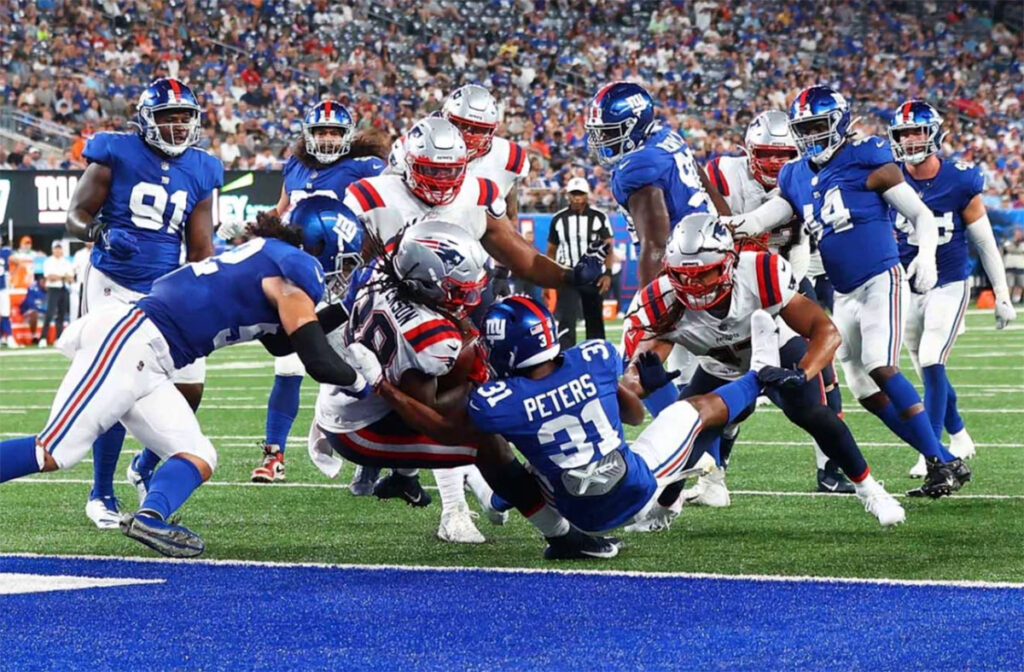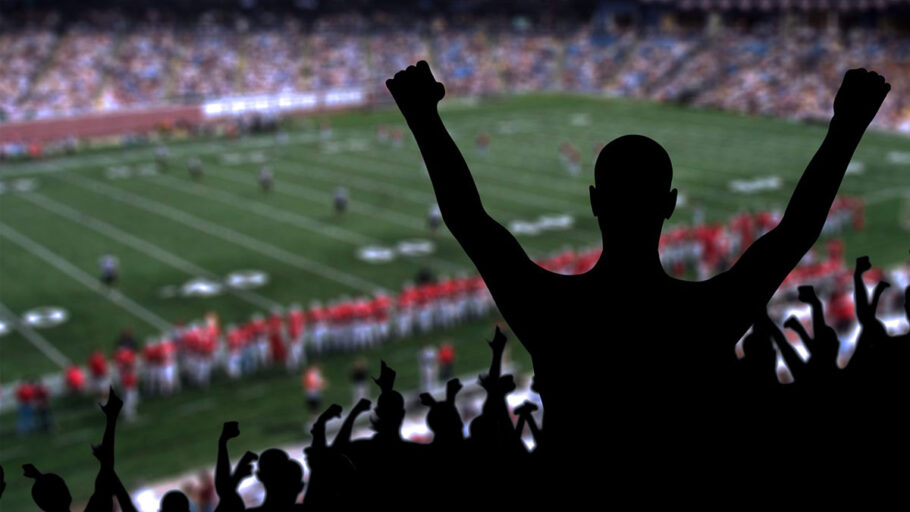
Photo / Courtesy KHN
COVID, DELTA AND YOUR FAVORITE SPORT
By Phil Galewitz and Andy Miller
Haga click aquí para leer la versión en español
The college football season is kicking into high gear, the National Football League season starts Sept. 9, and the baseball pennant races are heating up. For the first time since 2019, nearly all stadiums will be fully open to fans.
In the so-called Before Times, sitting shoulder to shoulder inside a stadium with tens of thousands of boisterous spectators — after a few hours of pregame tailgating — was a highlight of many fans’ autumn. But with covid-19 cases, hospitalizations and deaths soaring from the delta variant, many fans are wondering if that is a wise idea.
KHN talked to seven health experts to get their takes.
Is it safe to go to a packed stadium even if you are vaccinated?
Six out of the seven public health experts that KHN spoke to from big football states were adamant in their response: No way. Not now.
“I am a die-hard sports fan,” said Jason Salemi, an associate professor of epidemiology at the University of South Florida in Tampa. “But I would not go to these events right now.”
Salemi said that with covid cases at their highest level since late January — with the seven-day average case count rising to just over 149,000 as of Monday — and hospitals filling up around the country, there is too much risk even for people who have been fully vaccinated against covid.
While outdoor events are less likely to lead to infection because the air circulation is greater, sitting within just a few feet of 10 or 20 screaming fans watching football, baseball, soccer or an auto race at a stadium reduces that safety margin, he said.
Vaccines greatly lower your risk of being hospitalized or dying from covid, but the dominance of the more transmissible delta variant is leading to increasing numbers of breakthrough infections, some of which do cause uncomfortable symptoms. Getting infected also increases the likelihood of passing the infection to unvaccinated people, who could become seriously ill.
Even some vaccinated fans — especially those who are older and frail or people with chronic medical conditions — should also realize they face higher risk from an infection. The Centers for Disease Control and Prevention does not specifically have guidance about sporting events, but it recommends that anyone attending large gatherings in areas with high numbers of covid cases should “consider wearing a mask in crowded outdoor settings and for activities with close contact” with others who are not fully vaccinated.
“A packed football stadium now is not a good idea,’’ said Dr. Olveen Carrasquillo, a professor of medicine and public health sciences at the University of Miami’s medical school. “When there’s a lot of shouting and yelling’’ without masks, “it means they’re spraying the virus.’’
Football stadiums, which are generally among the largest sporting venues in this country, are typically packed with fans cheering and high-fiving, making it impossible to physically distance from people who may be unvaccinated. Equally difficult is remaining apart from the unvaccinated in crowded concourses and restrooms.
Dr. Robert Siegel, a professor of microbiology and immunology at Stanford University, said that while the risk of dying or ending up in intensive care from covid after being vaccinated is “vanishingly small,” he would prefer to even avoid a milder case so he doesn’t have to worry about long-term consequences of the disease. “It’s not worth it to me, but if football is your life, you may have a different calculus,” he said.
What can I do to reduce my risk at the game?
The first line of defense is being fully vaccinated.
If unvaccinated, don’t go to the game, all seven experts strongly recommended.
Some colleges such as Louisiana State University are requiring fans to be vaccinated or to show a negative covid test to attend a game — and many players on teams are vaccinated to reduce their risk and stay in the game. But many stadiums will have no such restriction on fans.
Wear a mask except when eating or drinking.
Mask mandates vary by venue for both the NFL and college teams. Even if others around you are not wearing one, your mask will give you a level of protection from inhaling the virus. “It’s best if all parties are wearing a mask, but wearing a mask is better than not wearing a mask,” said Dr. Nasia Safdar, a specialist in infectious diseases at the University of Wisconsin School of Medicine and Public Health.
Dr. Dale Bratzler, Oklahoma University’s chief covid officer, said he would not tell vaccinated people to avoid going to football games. He does strongly advise, however, that fans consider double masking. He doesn’t plan to go to the OU games this fall, but it has nothing to do with covid. “It’s because of the traffic getting into and out of the stadium. I am fine watching at home on TV.”
If you want to protect others, consider taking a home covid test the day of the game. If the test results come back positive, or if you feel any symptoms, even a runny nose, mild headache, or cough, don’t go to a game, Safdar said.
And the experts said to pay attention to the level of covid cases in any city to which you are traveling. The incidence could be high, and that should factor into your decision about attending a game.

What about tailgating for hours with friends before the game?
Most of the experts agreed tailgating with a few friends outdoors is a less risky part of the football game experience. But that’s only if you know the people you are eating and drinking with are vaccinated.
“It’s also that party atmosphere, where people are generally not in a position to wear a mask and you are standing close to people,” Safdar said. “It’s still a risk.”
Millions of people have been attending baseball games, soccer games and other sports events all summer — without many outbreaks. Why worry now about football games?
There have been rare reports of outbreaks from major league baseball stadiums, which often pack in 40,000 fans. But that could be changing, too, because the more highly transmissible delta variant has been widespread only since July. Also, the experts said, it’s difficult to track how many fans get sick because the incubation period can last a week or more. People may not connect their illness to the game, especially if they assume outdoor activities are safe.
“Delta changed the entire equation of how we looked at the risk,” said Dr. William Schaffner, an infectious disease expert at Vanderbilt University School of Medicine in Nashville. “I do think there will be transmission’’ in stadiums.
Health experts point to the Sturgis Motorcycle Rally in South Dakota last month that has been linked to more than 100 infections.
Can I still get together with other vaccinated friends and family?
Even with the delta variant raging, health experts say people who are fully immunized can safely meet without masks with those they know are fully vaccinated.
“If you know with certainty that someone is vaccinated, you can safely get together for dinner and other activities,” said Dr. Joseph Gastaldo, a specialist in infectious diseases at Ohio Health, a large, multihospital system based in Columbus.
And the risk of spread can be minimized at events such as an outdoor wedding if organizers include requirements for vaccinations, wearing masks and physical distancing for vulnerable attendees, experts say.
You may also like:
Joe Ellis and Denver Broncos Receive 2021 Community Enrichment Award
US Will Begin Third Dose on September 20






otras noticias
Polis has 30 days to sign, veto, or let SB25-276 take effect
Active-Duty Soldier Arrested in Connection with Colorado Springs “After Party” Raid
Guest Columnist – A Prescription Drug Discount Program Being Exploited is Costing Colorado Workers More Money